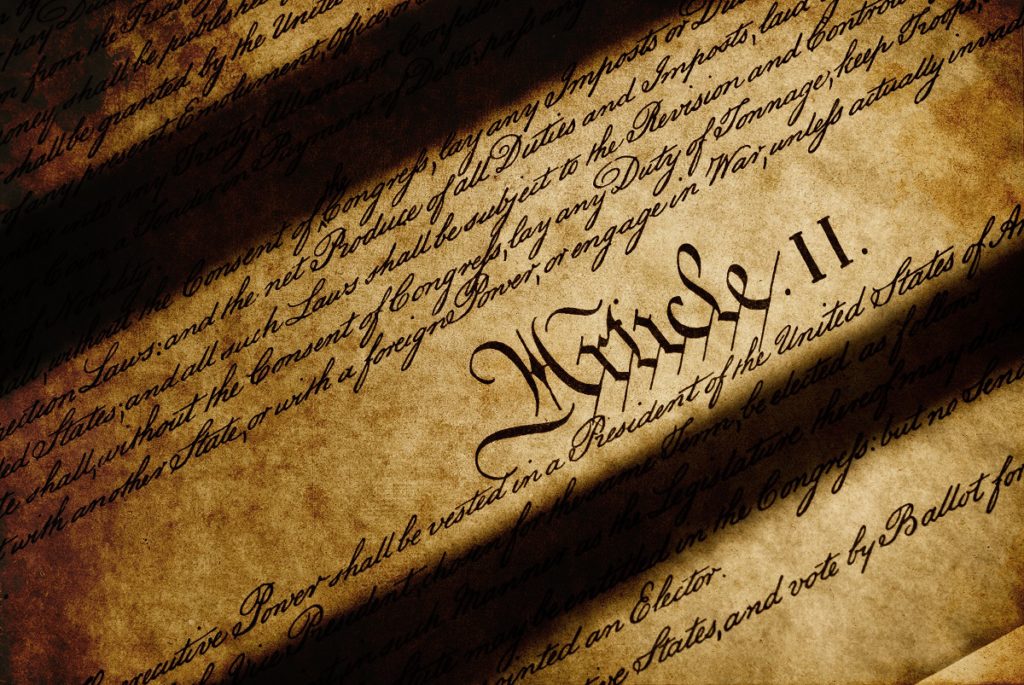This essay is part of a series of advice for Judge Gorsuch. See related articles here.
Today the Senate begins Supreme Court nominee Neil Gorsuch’s confirmation hearings. Gorsuch, who currently serves on the Tenth Circuit, will face a barrage of questions regarding his judicial philosophy.
Among these will probably be the question of what role natural law plays in his approach to judging. Judge Gorsuch received his DPhil in Law at Oxford, writing his dissertation under the direction of John Finnis, one of the most influential natural law theorists of the past fifty years. Gorsuch also published a book based on that dissertation titled The Future of Assisted Suicide and Euthanasia, in which he discussed natural law concepts such as the intrinsic value of human life.
In light of this background, there has been much speculation about what his interest in natural law might mean for issues such as abortion, assisted suicide, and same-sex marriage. Among liberals, Gorsuch’s potential use of the natural law has been met with a combination of fear and outrage. Among conservatives, the reaction has been more mixed. George Will communicated the hope that Judge Gorsuch, unlike his predecessor Antonin Scalia, would ground his decisions in the view that the natural rights spoken of in the Declaration of Independence should receive extensive judicial articulation and protection. Others such as Eric Claeys expressed caution regarding how much natural law could and should inform a judge’s decisions. In the past, prominent figures such as Robert Bork and Antonin Scalia have taken a very hardline view against the use of natural law in judicial decisions. Many conservatives of this stripe worry that relying too much on natural law could contribute to judicial activism—judges deciding based on their own opinions, whether conservative or liberal, and thereby rejecting fidelity to the Constitution.
Start your day with Public Discourse
Sign up and get our daily essays sent straight to your inbox.So before we spend too much time analyzing Judge Gorsuch’s views on the topic, we should first ask: can a judge make use of some form of natural law while still remaining faithful to the Constitution?
The Example of John Marshall
I believe that we can find an answer in the jurisprudence of one of the greatest men ever to sit on the Supreme Court: Chief Justice John Marshall. The Great Chief Justice affirmed both natural law and the need for judges to faithfully interpret and apply the Constitution and legislative statutes. The Constitution served as ruler, the natural law as guide. His example shows us a way in which the two can coexist in Supreme Court jurisprudence.
To begin, we can see numerous occasions where Marshall asserted that some form of natural justice existed. In the case of Fletcher v. Peck, for example, Marshall declared that “there are certain great principles of justice, whose authority is universally acknowledged, that ought not to be entirely disregarded.” In Ogden v. Saunders, he discussed the “laws of nature” by which certain “obligations” arose among human beings.
Given the existence of natural law, what was its content for Marshall? In Ogden, Marshall argued that the laws of nature revealed that all men possessed “natural rights” as well as “their correspondent natural obligations.” In Worcester v. Georgia, moreover, Marshall wrote concerning Native Americans that they “had always been considered as distinct, independent political communities, retaining their original natural rights.” Thus, natural law revealed that humans had certain rights, rights that existed apart from any social convention or governmental decree.
What did these natural rights include? Their content encompassed the rights often asserted under natural law, then and now—life, liberty, and property. In the case of Boyce v. Anderson, for instance, Marshall sought to protect a slave from cruel conditions in transportation. In so doing, he asserted that a slave was not mere merchandise, that he “has volition, and has feelings which cannot be entirely disregarded.” Therefore, Marshall argued that “he cannot be stowed away as a common package. Not only does humanity forbid this proceeding, but it might endanger his life.” In a decision relating to the slave trade, The Antelope, Marshall also addressed the right to liberty, declaring it to be “sacred,” not originating in custom or law. Finally, returning to his opinion in Ogden, Marshall asserted the natural right to property, arguing that “men derive the right of private property . . . from the principles of natural universal law.”
At the same time, Chief Justice Marshall argued that the judge’s duty lies in interpreting and applying the will of the people. This manifested itself in two ways. First, and fundamentally, the people’s will manifested itself in the higher law of the Constitution. Marshall noted this point in McCulloch v. Maryland, where he argued that from the people’s ratifying conventions, the “Constitution derives its whole authority.” Second, the people’s will was made known through its representatives. Thus, Marshall asserted in the same case that “The government proceeds directly from the people; is ‘ordained and established’ in the name of the people.” Marshall spoke of these forms of law—not the natural law directly—when he famously said in Marbury v. Madison that “It is emphatically the duty of the judicial department to say what the law is.” Marshall believed that judges were obliged to interpret the law as intended by its framers—saying that “the most sacred rule of interpretation” was that it was “the great duty of a judge who construes an instrument . . . to find the intention of its makers.”
Clearly, Marshall believed in both natural law and adherence to the original meaning of the Constitution. How did he remain faithful to these two beliefs?
Natural Law and the US Constitution
Marshall’s faithfulness to both principles began with his belief that the Constitution’s original purpose was to enforce natural law. Marshall was in a position to know; keep in mind, Marshall was not only Chief Justice, but also a leading delegate in defense of the Constitution at Virginia’s ratifying convention.
Marshall understood the purpose of government in general and of the US Constitution in particular in terms of natural law. In Marbury, he declared that “the very essence of civil liberty certainly consists in the right of every individual to claim the protection of the laws whenever he receives an injury. One of the first duties of government is to afford that protection.” Government’s first duty consisted in giving protection to individual rights, whether in the form of deterring potential infractions or in remedying those that had already occurred. These rights are not merely vested by society or by positive law. In Marshall’s view, such natural rights—life, liberty, and property—receive constitutional protection while not originating in the Constitution.
Still, Marshall did not believe the Constitution’s purpose gave judges carte blanche to rule according to their view of the natural law. Rather, he believed, with the Constitution as master and natural law as guide, the judiciary’s job was first and foremost to say what constitutional or statutory law was.
This perspective creates significant limitations on the judge’s use of natural law. For while the Constitution sought to conform to this law, it did not grant blanket power to act according to natural-law precepts. Instead, the Constitution gave specific grants of power and particular protections of rights. The Constitution and the laws provide the only direct source of judicial power. Judges can only pursue the natural law, then, to the degree that particular provisions of the Constitution or statutory law give them the authority to do so.
What Happens When Positive Law Conflicts with Natural Law?
In United States v. Fisher, Marshall discussed what to do when a law seemed to contradict natural justice. He argued that “where rights are infringed, where fundamental principles are overthrown, where the general system of the laws is departed from, the legislative intention must be expressed with irresistible clearness to induce a court of justice to suppose a design to effect such objects.” The natural law could and should serve as a guide to interpreting textual ambiguity; judges should presume that laws sought natural justice. But if the clear intent of the statute worked the opposite, absent a constitutional remedy, the text was binding.
In The Antelope, for example, he declared that the slave trade “is contrary to the law of nature,” but that “this Court must not yield to feelings which might seduce it from the path of duty, and must obey the mandate of the law.” In many countries, the slave trade remained legal, so the property rights of the slave owners deserved respect. The positive law ruled. Still, within the mandate of the law, the natural law could guide the positive law’s application. Along these lines, Marshall went on to strictly construe the rights of slave masters and broadly those of the slaves, demanding a high burden of proof of ownership for the slave masters to keep the slaves in captivity. Absent that proof for many of the slaves, Marshall set them free.
At the same time, Marshall did find instances where the Constitution protected natural rights, particularly the right to property. Marshall often looked to the Contract Clause found in Article I, Section 10 of the Constitution, which declares that “no State shall . . . pass . . . any . . . Law impairing the Obligation of Contracts.” Marshall saw this clause as a means of protecting property, since contracts often involve agreements between individuals to exchange their possessions. If a state changed the obligation attaching to that contract, then it thereby could impair the property rights of those involved.
In Fletcher v. Peck, Marshall put these principles to work. In that case, a Georgia legislature sought to revoke a land grant given by the preceding lawmaking body because of claims of bribery and other forms of corruption. Marshall asked whether Georgia could void its contract, even though doing so would violate “certain great principles of justice.” Judging only by state law, Georgia would be able to void the contract and thus infringe on property rights. However, the Constitution, through the Contract Clause, had made enforceable protections for property rights. Thus, Marshall saw a constitutional mandate to protect the natural property rights involved in that case, again showing how the positive law ruled while the natural law guided.
Therefore, in Chief Justice John Marshall, I see an example of how a judge might take into account the precepts of natural law while still adhering to the Constitution and to the laws as originally understood. The written law remained the proximate, direct standard by which judges must always decide. That law ruled. To go beyond those bounds undermines the rule of law, substituting it for the rule of a judge’s opinion. However, one could and should understand the particular provisions of the law—particularly the Constitution—as pursuing natural law principles. The rights to life, liberty, and property did inform the Founders’ understanding of government in general and of the Constitution in particular. Thus, to the extent that particular provisions pursue the natural law, that higher law can serve as a guide to faithful interpretation.
Today we almost certainly will see Judge Neil Gorsuch questioned on his understanding of the natural law. He will face questions whether he still subscribes to a form of natural justice, and about that justice’s content, as well as about the role it should or should not play in constitutional interpretation. Rather than denying any role for natural law or going the way of natural-rights judicial activism, let us hope Gorsuch has found another way. Let us hope that, in his answers and in his future jurisprudence, he looks to the example of the Great Chief Justice—the Constitution as ruler, the natural law as guide.













